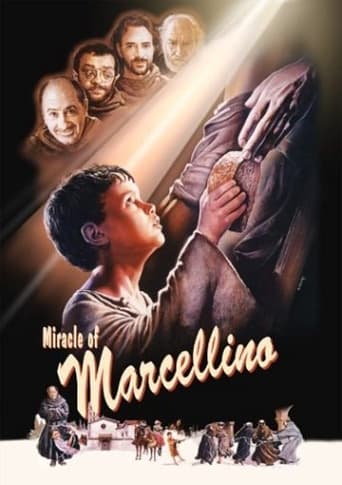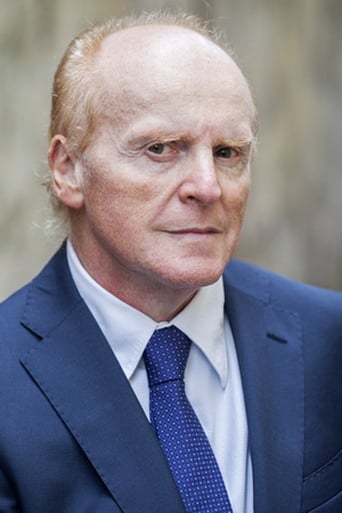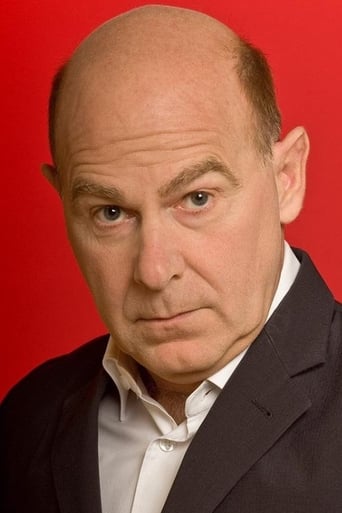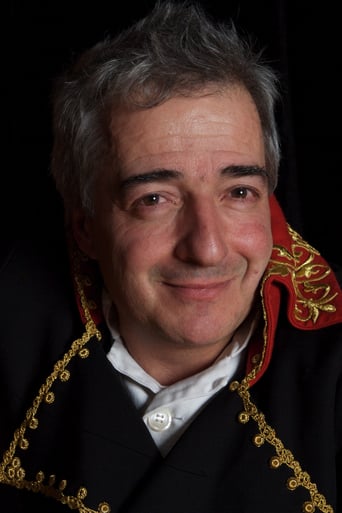

Miracle of Marcellino (1991)
In the 15th century, in a poor Italian village, the monks of a modest convent take up an abandoned baby. Unfortunately, for all their efforts, they prove unable to trace his parents. So they set up providing tender loving care to the little boy. Marcellino lives a happy life among the men of God but, as he grows up, he misses his mother more and more.
Watch Trailer
Cast


Reviews
A Masterpiece!
This story has more twists and turns than a second-rate soap opera.
It's easily one of the freshest, sharpest and most enjoyable films of this year.
what a terribly boring film. I'm sorry but this is absolutely not deserving of best picture and will be forgotten quickly. Entertaining and engaging cinema? No. Nothing performances with flat faces and mistaking silence for subtlety.
Once in a great, great while, a motion picture reaches out from the confines of the screen to implant a spark of purest wonder in the heart! . The film starts in a long flashback narrated by Marcelino , he tells how an abandoned baby is picked up by monks residing in a monastery ruled by a humble Father Superior (Fernando Fernan Gomez) . Marcelino (Nicolo Paolucci) is a miserable orphan who grows up in the monastery . The little boy named Marcelino who lost his mother and became a pure and simple of heart kid devoted friend of Crucified Jesus . Meanwhile, he gets into mischiefs , he plays and puts nicknames to monks , as Brother Door , Brother Cookie , Brother Bad , Fray Papilla (Alfredo Landa) and Brother Ding Dong . Marcelino wishes to see his mother . One day , a wealthy count , in search of a child to raise , decides to adopt Marcelino and to bring him up in his fortress . He dresses him in luxurious attire and gives him a strict education . But Marcelino feels sad there and escapes to convent . One day when he falls ill is carried a room full of old things , there he finds at the loft to Jesus and gives a piece of his bread to an old wooden Jesus figure - and indeed it takes the bread and eats it . Getting a wish granted for his donation . But in some touching scenes , Marcelino again gives him bread and wine , then happen an ecstasy at the ending .Spanish/Italian/French co-production dealing with a sensitive story proceeded in simplicity and delicacy by Lugi Comencini as when a marvelous friendship between Jesus and Marcelino is born . This a sensible and feeling movie full of mirth , humor touches and enjoyable message based on a novel by Jose Maria Sanchez Silva . At the same time the film gives us an agreeable panorama about monastery life , its pity and goodness ; furthermore , the oration , sacrifice , work , companionship and various situations happen in monastic existence . Its perfect developing resides on superb characters well played by all casting monks and the sympathy , simplicity of Nicolo-Marcelino , but inferior to unforgettable kid played by Pablito Calvo. Musical score by Florenzo Carpi responds appropriately to the ambient , originating a religious atmosphere , though extremely sweet . Precious and luminous cinematography who give us an accurate scenario of the times is developed . The motion picture is professionally directed by Luigi Comencini but is justly inferior to version filmed by Hungarian Ladislao Vadja , that was one of the best films to come out of Europe in the decade of the 50s and touched the hearts of numerous spectators around the world . This modern rendition resulted to be a flop and failed at box office .
In the mid 1950s, a Hungarian/Spanish director Ladislao Vajda made a movie that still touches the hearts of many viewers around the world. The story of the little boy Marcellino who lost his mother and became a pure, simple but devoted friend of Crucified Jesus appears to be unreal for many, perhaps; yet much in need for lots of people who cherish simplicity and spirituality in art that cinema is. However, the black and white Spanish classic has occurred dated to be shown to kids and, in the early 1990s, the Italian director Luigi Comencini remade it. As comparison does not work due to two individual interpretations of the directors, I do not aim at saying which version is better and why. In my comment, I would like to concentrate on some strong points of this remake since the general impression of yours after seeing the film will surely be "a decent drama."Firstly, since this is the story of a little boy, the film is accurately addressed to children and youngsters. The "in media res" beginning that shows us the group of young tourists who visit the monastery where Marcellino lived gives us a clue to "universality" of a short but beautiful life. These kids, in a sense, are struck by the simplicity of the events, by the uniqueness of the place. The flowers placed by a little girl resemble gratitude. This clear address to youngsters is also proved by very fine scenes some of which I would like to highlight. Consider, for instance, the witty moments with disappearing slices of bread or Marcellino trying to make friend with a spoiled boy from count's palace. I also loved the scene when people see little baby Marcellino in the stable on Christmas night. Although the story is pretty sad, these childlike moments make it a perfect movie for kids and young people.Secondly, the whole movie gives us a nice insight into the monastic life, its sacrifice, its piety, its prayer, work and brotherly love. That is what we experience, what we get to know with little Marcellino from the memorable moment of his baptism to the final moment of his parting. This piety and simplicity of the life it shows is intensely combined with the entire spirit of the movie. Music, atmosphere, some moments, including the "burning" of the monastery lead us to a specific but profound world of humble brothers. At the same time, it gives us an accurate interpretation of the times developed.Thirdly, the film conveys the precious message I have mentioned in many of my other comments on various spiritual movies. It is a film we are in need in our times, a film that, despite its lack of fun, gives us joy; despite its lack of realism, gives us faith; despite its lack of great celebrities, gives us authenticity. Like it was the case with the 1955 movie, you watch this story of a little, unnoticed Marcellino and you cry with him and laugh with him. So to say, a viewer young or old feels like a pure, unexperienced, honest child.Here, a profound reflection arises: what really makes us feel young. People attempt at looking young but what happens inside is a different story. This film appears to give the answer...simplicity of heart similarly to Marcellino. The most touching scene in this movie, for me, was when Marcellino talks to Crucified Jesus and gives him bread. But, before seeing it, try to put aside all sense of spiritual gravity, all sense of earthly logic. Try to see it with an unexperienced "childish" heart and you will see that this is a film about a boy and the dearest Friend anyone can ever have. See it, show it to kids, try to be overwhelmed by the miraculous spirit it promotes. No great performances, no stunning cinematography, just a movie, just a story but...what a story!
36 years later... And I have not seen the original film. But is for this that I can comment this film, because I don't have prejudices to value it, I don't compare this film with the original film. The way to say the story and to shape the characters it's made with sensitivity and delicacy. Describes the costumes of a time without many colours, but in exchange it has a variety of situations superior that we can think in a monastery. The interpretation of Fernán Gómez is very appropriate, with the knowledge of piety and rectitude interpretation. The story is full of humour touch, but all is covered with a mist of sadness, with an ecstasy at the end. The music responds perfectly to the ambient, creating a religious and calm atmosphere, except in the end, only moment with a great chorus. The costumes and setting are phenomenal because many films made with more money gain the truth less than this film. It's worthy to see it, and, then, judge by yourself.
Poor remake of the masterpiece of Ladislao Vajda, with the poetry of the original convert in a style like a mini-series of qualite. Only the good performances of old actors have interest, but the movie don't have interest in contrast with it's original.




